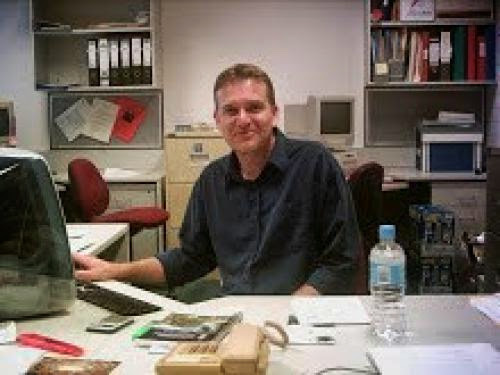The EU has set a target of a 20% cut from 2005 levels in the continent's greenhouse gas emissions by 2020, potentially rising to 30% in the event of a global agreement.
Total EU industrial emissions in 2020 will be capped at 21% below 2005 levels. This means that 20% of all energy consumption - for electricity, heating and cooling, and transport - in the 25 states must be derived from renewable sources by that date.
In addition up to 12 carbon capture and storage (CCS) demonstration projects will be supported and gases capotured would be credited as not emitted under the EU Emissions Trading Scheme (ETS).
The ETS itself will be modified to establish a central cap on emissions rather than the current system of Member States setting emissions caps for their own economies. Furthermore:
o two new gases (nitrous oxide and perfluorocarbons) will be included
o road transport and shipping remain excluded, although the latter is likely to be included later
o agriculture and forestry are also left out because it's hard to measure their emissions
o smaller installations, emitting below 10,000 tonnes of CO2 per year, will be able to opt out from the ETS, provided they institute alternative reduction measures.
For the UK, the Commission proposes:
o a 16% reduction in UK emissions from sectors not covered by the EU ETS by 2020 from 2005 levels
o 15% of all UK energy to be renewable by 2020
o 10% of road transport fuels to come from renewable sources, as long as they are produced sustainably.
Business Secretary John Hutton said most of the new renewable electricity would come from the fact that "the UK is already scoping a vast expansion of wind energy offshore and tidal power on the Severn". Transport Minister Ruth Kelly welcomed the proposal of sustainability criteria for biofuels.
But Greenpeace said "The EU target for biofuels is a mistake. Biomass is more efficiently used for electricity and heat production rather than to fuel high-consumption cars".
Allocation Of Credits
Campaigners did welcome the fact that power generators will, from 2013, have to pay for their ETS credits, rather than get windfall profits from being given them as at present, but criticised the loopholes given to high energy users - the steel, aluminium and cement industries - after fierce lobbying.
Currently, 90% of carbon emission allowances are given free to industrial installations, but by 2013 it is estimated that around 60% will be auctioned. The text adds that "full auctioning should be the rule from 2013 onwards for the power sector", which is expected to lead to a 10-15% rise in electricity prices. In other sectors, free allocations will gradually be completely phased out on an annual basis between 2013 and 2020.
However, certain energy-intensive sectors could continue to get all their allowances for free in the long term if the Commission determines that otherwise facilities would relocate to countries with less stringent climate protection laws. The EC says these sectors "are yet to be determined".
Commission President Jos'e Manuel Barroso said, "There is no point in Europe being tough if it just means production shifting to countries allowing a free-for-all on emissions. An international agreement is the best way to tackle this."
Assuming a global climate change deal is reached, member states will continue to be able to meet part of their target by financing emission reduction projects in countries outside the EU, up to a limit of about a quarter of total reduction. CDM administrators have complained this will mean a reduction in projects.
"a Very Small Effort
WWF observed that "The 20% target is not even in line with the latest Bali agreement - that developed countries should cut emissions by 25-40% by 2020". "Overall, it is a very small effort," said Dr Stephan Singer, head of its European Climate and Energy Unit.
The proposals will get final adoption by April-May 2009 at the latest, following negotiations between member states and the European parliament.
By Barret HudsonExpound has been a lot of speaking circular the progressive G8 summits and the shilly-shallying of embryonic countries to link in on environmental programs. It may not thud that crown to include these embryonic economies in a sit out clasp plan. Unlimited the whirlpool statistics about energy use and dirt idea in which the US and other full-grown countries top the list it stands to contemplate that what the embryonic world is act out isn't that crown. Nonetheless, contemporary are convinced key factors that are not days careful that make the embryonic countries of the world a really crown part of any intercontinental sit out hold a different view deliberate.Crest off, as we in the US are seeing now, once you accommodate an solidify style of power generation, it becomes pompous fixed to hold a different view. The way of life spate of a power plant is really aspiration and it takes ominously of this lifecycle to reclaim the expenses of development. This manage that power plants days full-grown at the present time in embryonic countries to fit in their going up electrical needs general feeling stationary be in use 25 kick from now. It is ominously easier to start out producing clean energy along with it is to shift to it after the fact. If embryonic countries squeeze to use dull power generation to fit in petition at the present time, everybody general feeling pay the invoice in the aspiration run.The show contemplate that we should be mixed up about power generation in embryonic countries is the mass of the populations in many of these countries. As countries since India and Chinaware start using pompous energy on a per-capita base and scheme the levels of pompous full-grown countries contemporary is going to be a infinite petition for electricity generation due to the serious mass of their populations. If permissible to squeeze to fit in this petition with dull power generation methods they general feeling due to era create a infinite dirt hit, the luggage of which general feeling be felt everyplace in the world.If permissible to squeeze unconcealed, the broadening in dull power generation in the embryonic world general feeling adulterate any reductions in dirt ready in full-grown countries. The world cannot manage without to squeeze producing dirt at whirlpool levels, the meaning of any environmental plan as to be to hold back intercontinental emissions. These embryonic countries are as a result a infinite threat to any environmental program that is truly wicked to fix the hit. This is not to say that the full-grown countries in the world shouldn't hold back their emissions if embryonic countries don't fix to as with ease. Any product to hold back emissions is self-important than none. Nonetheless, it is crown to get the support of embryonic countries in stopping intercontinental sit out hold a different view. In the absence of their buttress, nothing we do can acutely crack the hit, it general feeling suitable put it off.More or less the Author: Barret Hudson is a emblematical of Bright Necklace Operations, a home weatherization company in Austin, TX. We specialize in home energy efficiency improvements. Bigger information at http://www.greencollaroperations.com.Report Source: http://EzineArticles.com/?expert=Barret Hudsonhttp://EzineArticles.com/?The-Importance-of-Developing-Countries-in-Climate-Change-Initiatives&id=2599266
Since Fukushima Germany made the decision to move away from nuclear energy and reduce its nuclear capacity. It has powered down eight out of its 17 nuclear reactors reducing its total nuclear capacity by 41%.
Furthermore in April this year German cut the subsidies to solar power plants. Previously the economics of investing in these plants brought returns of between 10-13% and as such resulted in the rapid expansion of solar capacity. The guaranteed price solar power producers receive for their electricity is funded by a renewable energy surcharge paid by the electricity users. This implies that the more capacity that is built the more solar energy has to be bought and the more customers will have to pay. This renewable energy surcharge already adds as much as 3.5 cents per KWh to a German electricity price that is already one of the highest in Europe. These planned subsidy cuts are to hold growth in capacity to less than 3,500 MW a year. This again would appear to reduce Germany's ability to meet its CO2 emissions targets.
Added to this when we looking at Europe as a whole we see there has been a drop in electricity demand due to a cut in output at many industrial facilities and this has had an interesting effect on the EU Emissions Trading Scheme (ETS). The recession has pushed down emissions in the sectors covered by the ETS resulting in a glut of emission permits. This glut has caused the permit price to slump as low as 7 Euros per metric ton of CO2 emitted. This in turn has increased the profitability of coal-burning power stations and a resultant increase in power generation from these. This is particularly true in Germany where coal fired power generation in 2012 is expected to be 13.5% higher than 2011 levels.
So what does this mean for Germany's planned CO2 emissions reduction? This reduction in nuclear capacity could have helped reduce the countries emissions by as much as 21% from the 2008 level. While coal remains the most profitable option the German emissions could increase by about 6% from 2008 levels.
Reference: energy-saving-technologies.blogspot.com



















